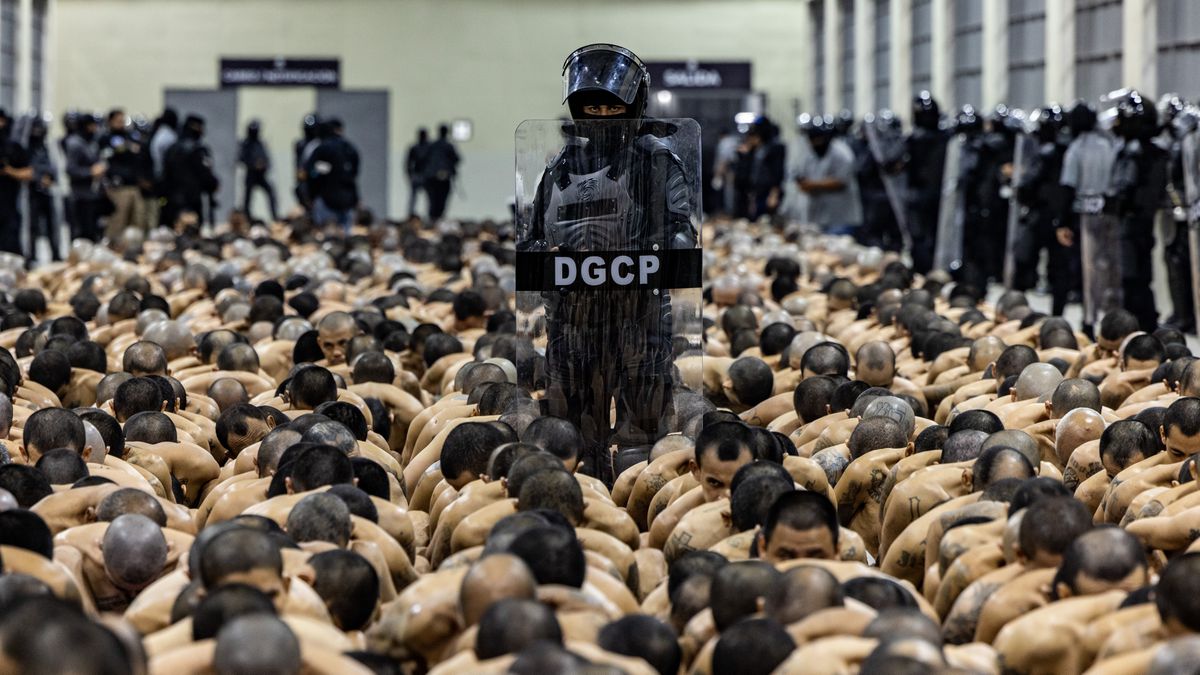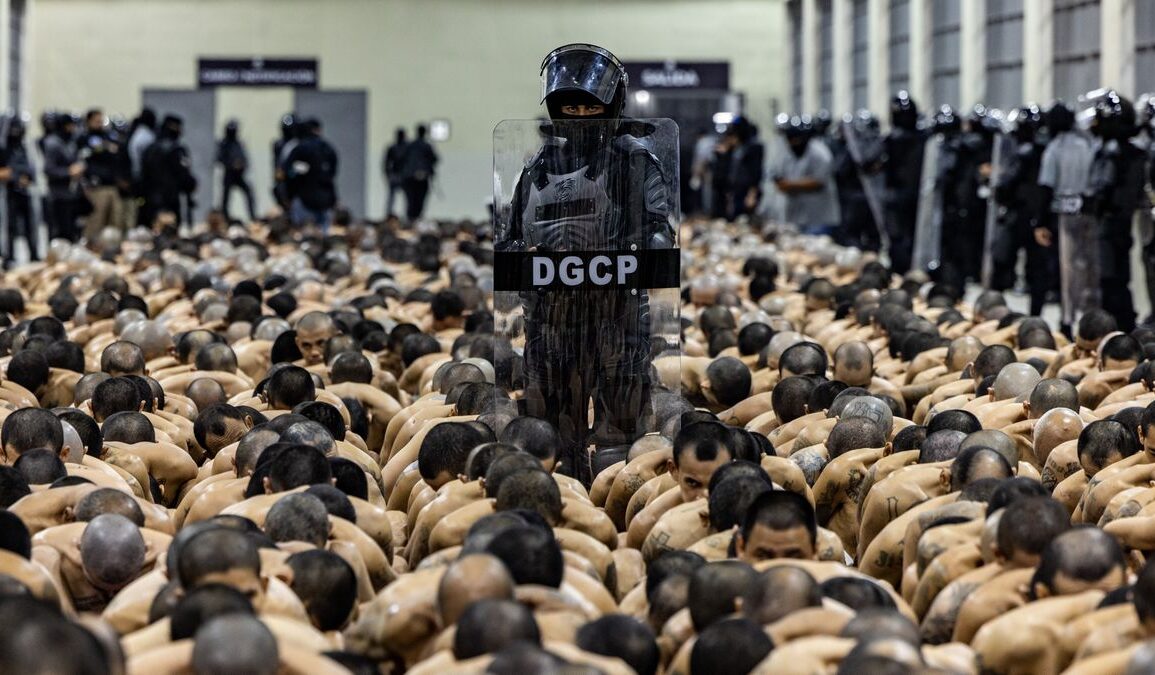
More than 71,000 people have been detained under the state of emergency in El Salvador, which was issued by President Nayib Bukele and which has enabled him to neutralize the country’s maras, or criminal gangs. Not only are prisons struggling with overcrowding, the country’s courts are also unable to cope. In an effort to address this problem, the Salvadoran Parliament — where Bukele’s New Ideas party holds a majority — has approved transitory provisions and reforms to the Law against Organized Crime. These changes raise the punishments for gang leaders and allow collective trials to be held. These mass hearings — which can involve up to 900 detainees at a time — will prosecute entire criminal structures, rather than allowing defendants an individual trial. The move has sparked alarm, as human rights organizations claim at least 5,490 “direct, innocent victims” have been imprisoned by Bukele’s iron-fist policy.
Lawmakers from the New Ideas party argue the measure will “make it easier for judges to convict criminals more quickly and prevent members of these criminal structures from being released.” The reform formalizes a practice that the Salvadoran justice system had already been carrying out in practice in the face of the high number of arrests of gang members as well as thousands of citizens who have no ties to these criminal structures.
Back in May, a group of United Nations experts warned that the state of emergency was undermining prisoners’ right to a fair trial. In a press release, the experts said that initial hearings, in which judges review the legality of an arrest and decide on charges and pre-trial detention, were reportedly held in groups of up to 500 people. “Public defenders have been given three to four minutes to present the cases of 400 to 500 detainees at a time. Mass trials have also been reported,” the release stated. “Mass hearings and trials — often conducted virtually — undermine the exercise of the right to defense and the presumption of innocence of detainees,” the experts said.
The state of emergency was approved for a period of one month in March 2022, but has been repeatedly extended since then. The aggressive policy has helped neutralize gang violence, which has boosted Bukele’s popularity so much so that he has registered to run for re-election in contravention of the country’s Constitution. Bur human rights organizations argue that it has also led to widespread human rights violations. In May, Amnesty International reported that 132 people had died in custody, and also documented flagrant violations of due process and forced disappearances.
According to the United Nations experts: “The excessive use of pre-trial detention, the prohibition of alternative measures, trials in absentia and the possibility of using practices such as ‘faceless judges’ and reference witnesses all undermine due process guarantees.”
Opposition lawmaker Jaime Guevara claimed the new reform represents “a risk and a threat to the innocent prisoners who are in jail awaiting a fair criminal trial.” Prosecuting criminal structures, rather than individual detainees, violates prisoners’ right to due process. Fellow lawmaker Claudia Ortiz argued that the reform “will only serve to make the job easier for the Prosecutor’s Office, so that they no longer have to investigate.”
The presidency of the Criminal Chamber of the Supreme Court of Justice received the bill just 24 hours before it was approved, meaning it had little time to offer its observations. Despite the short time, Justice Sandra Luz Chicas warned that the reform contains elements that take away power from the judges and turns them into paper-pushers.
“It seems that the judge is going to be just a paper-pusher and will not be able to judge,” said Chicas, who pointed out that raising the penalties for gang leaders may not be in line with the principle of proportionality, as the person who ordered the killing could receive a higher sentence than the person who carried out the murder.
Security Minister Gustavo Villatoro dismissed these concerns. “We are talking about up to 900 defendants per clica [a gang’s cell or group] or cancha [the territory controlled by a gang]. We are clear that the gangs acted as a criminal corporation in which the 15 leaders determined the criminal activities that the clica or canchca would carry out.”
The United Nations has repeatedly issued warnings about the Bukele administration. Experts stress that while the government has an obligation to protect citizens from atrocious acts of gang violence, it “cannot trample on fair trial rights in the name of public safety.”
The president of Chile, Gabriel Boric, has also attacked Bukele’s iron-fist strategy. In an interview with the BBC, Boric said that the solution only focuses on “the most extreme measures” and not on the “fundamental issues.” It is “bread for today and hunger for tomorrow,” he said.
Bukele was quick to respond to the criticism, posting on Twitter: “This government can do two things at the same time. A good security strategy includes the prevention and direct repression of crime. How difficult it must be to lead a country with so little common sense. Thank God, the Chileans are more than their president.”
Sign up for our weekly newsletter to get more English-language news coverage from EL PAÍS USA Edition
This post was originally published on this site be sure to check out more of their content.







